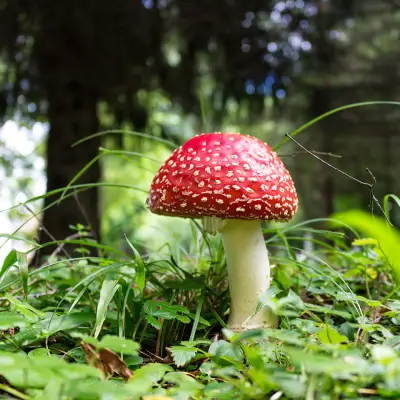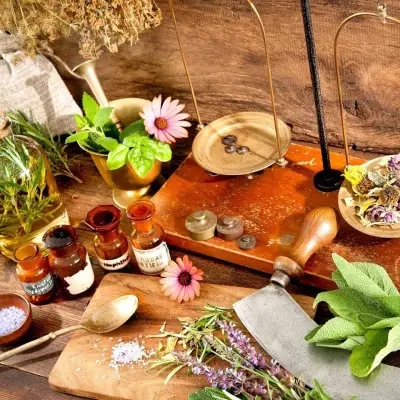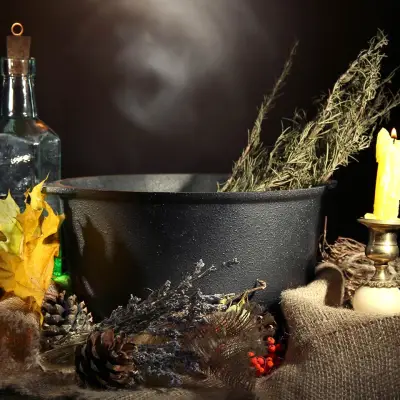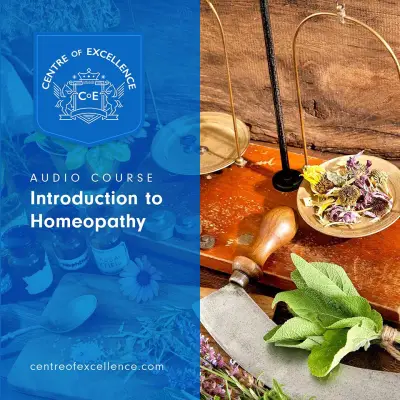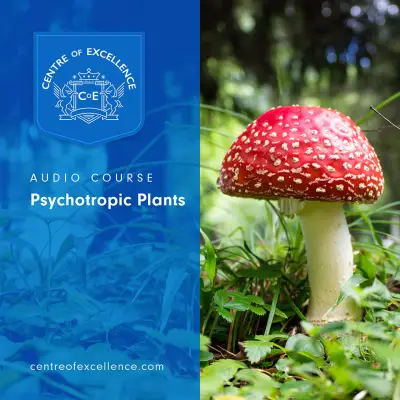If you're like most people, you've experienced the common cold at some point. The symptoms of a cold can be unpleasant and make it difficult to go about your daily routine. While there's no cure for the common cold, herbal treatments can help alleviate your symptoms and aid you in a speedy recovery.
In this article, we'll explore at-home herbal remedies for the common cold that are easily accessible and might already be sitting in your kitchen cupboards.
Jump to:
Understanding the Common Cold
If you're feeling under the weather, you have likely caught a common cold. The common cold is a viral infection that affects the upper respiratory tract, including the nose, throat, and sinuses. It is caused by a variety of viruses, most commonly the rhinovirus.
The cold virus spreads easily through the air or by touching contaminated surfaces. When you come into contact with the virus, symptoms can take up to three days to appear.
The symptoms of a cold can vary from person to person but typically include coughs, congestion, sneezing, runny nose, fever, fatigue, headache, and sometimes respiratory infections.
As the name suggests, the common cold is something most people experience. The positive thing about this is that humans have gotten pretty good and finding simple and effective natural remedies to help fight the infection. Becoming a herbalist is much easier than you think!
Recommended for you!
Best SellersNatural Remedies for the Common Cold
When you catch a cold, you might be tempted to take over-the-counter medication, but many natural remedies can help ease your symptoms and speed up your recovery. These remedies are often gentler on your body and can be just as effective as traditional medication.
Natural remedies are treatments from natural ingredients such as herbs, spices, and plants. They are often used as accompanying treatments to traditional medication.
Here are some herbal remedies for a common cold that may be effective in helping you feel better.
Echinacea
Echinacea is a herb used for centuries to treat colds and flu. It is believed to boost the immune system and reduce inflammation. This flowering herb is also high in antioxidants. You can take echinacea as a tea, capsule, or tincture.
Garlic
Garlic is a natural antibiotic and antiviral agent. It can help boost your immune system and fight off colds. You can eat raw or cooked garlic or take it as a supplement. Add garlic to hearty and warming meals such as soup for a quick immune boost.
Ginger
Ginger is an effective anti-inflammatory agent. It can help relieve congestion and reduce inflammation in the body. Ginger tea is a popular choice, but it can also be added to curries or stir-fries, adding flavour and many health benefits.
Honey
Honey is a natural cough suppressant used for centuries due to its powerful properties. It is especially helpful in soothing a sore throat and can reduce coughing. Add honey to oats and other sweet dishes, or take it alone.
Vitamin C Rich Foods
Vitamin C is a well-known and powerful antioxidant that can help boost your immune system and fight off colds. Most citrus fruits, including oranges and lemons, are naturally high in vitamin C, but you can also take it as a supplement. Try a citrus-packed smoothie to boost your vitamin C levels.
You often don't have to look far to find natural remedies. These options are simple yet effective in helping relieve common cold symptoms and can most likely already be found in your kitchen.
Herbal Teas for Cold Relief
Herbal remedies for a common cold can also be found in many natural teas. A warm cup of herbal tea can provide soothing relief when you're feeling under the weather with a cold. Not only do they hydrate your body, but certain herbal teas can also help to boost your immune system and alleviate symptoms.
Here are some herbal teas that may help to relieve your cold symptoms:
Lemon and Honey Tea
Lemon and honey are natural remedies used for centuries to help soothe sore throats and ease coughs. To make this tea, squeeze the juice of half a lemon into a cup of hot water and stir in a spoonful of honey. Drink it while it's warm to help soothe your throat and reduce coughing.
Sage Tea
Sage is a lesser-known yet just as effective herbal remedy for sore throats and coughs. It has antibacterial properties that can help to fight off infections and reduce inflammation. To make sage tea, steep a handful of fresh sage leaves in hot water for several minutes. You can add natural sweeteners if you wish.
Elderberry Tea
Elderberries are high in antioxidants and have been shown to have antiviral properties that can help to boost your immune system and fight off colds and flu. To make elderberry tea, steep a generous portion of dried elderberries in hot water. You can also add dried echinacea to create an even more effective tea.
Tea is an excellent choice for herbal remedies for a common cold, providing hydration and relief.
Herbs and Spices for Cold Relief
When fighting the common cold, herbs and spices can be a great natural remedy. Here are some of the most effective ones:
Onion
Onions are a great natural remedy for the common cold. They contain a compound called quercetin, which has been shown to have antiviral and anti-inflammatory properties. Onions are also naturally high in vitamin C, boosting immunity.
Thyme
Thyme is a herb commonly used in cooking, but it also has medicinal properties. It is known for its antibacterial and antiviral properties, making it an effective remedy for the common cold. Thyme is antispasmodic, meaning that the herb not only calms coughs but also helps clear mucus and decrease congestion.
Peppermint
Peppermint is a popular herb that is used in teas and other drinks. It is a natural decongestant, aiding in clearer breathing, which is essential when suffering from a cold. You can drink peppermint tea or create a balm which can be topically applied to the chest to help with congestion.
Astragalus
Astragalus is a herb associated with traditional Chinese medicine and is known for its health-boosting properties. This herb contains over 50 compounds that fight off infection and boost the immune system. It is growing in popularity regarding natural remedies and can be taken as a supplement or tincture.
You can find the herbal remedies above in your local health store or most supermarkets. As always, aim for high-quality products in order to reap the benefits.
Using Essential Oils to Fight a Cold
Essential oils can be a useful tool for naturally boosting your health. Although there are many varieties, eucalyptus oil is one of the most popular essential oils for colds. This oil is derived from the leaves of the eucalyptus tree and is used in many different traditional medicine practices due to its effectiveness.
To use eucalyptus oil for colds, add a few drops to a diffuser or vaporiser and inhale the steam. You can add a few drops to a bowl of hot water if you don't own a diffuser.
Another option is to mix a few drops with carrier oil, such as coconut oil, and apply it to your chest and throat.
It's important to note that essential oils should never be ingested, as they can be toxic.
Additionally, if you have asthma or other respiratory issues, you should speak to your doctor before using essential oils.
In addition to eucalyptus oil, other essential oils may be helpful for colds:
- Tea tree oil has antibacterial and antiviral properties that may help fight off colds and relieve congestion.
- Lavender oil is known for its calming effects that can help you relax and get a good night's sleep, which is important for fighting colds.
- Cinnamon oil helps ward off germs and boosts the immune system, and provides a rich and warm scent which can be soothing.
It's important to choose high-quality oils from a reputable source when using essential oils. You should also follow the instructions carefully and use them in moderation. Our accredited Aromatherapy Diploma Course is an excellent starting point for those wishing to become an expert in this wellness practice.
Herbal Remedies and Wellness
Herbal remedies are excellent in alleviating common cold symptoms, but combining them with other forms of immune system support is even more effective in feeling better sooner.
Holistic health is about focusing on the human body as a whole, which means covering the basics regarding your daily health routines.
There are several things you can do to support your immune system when you have a cold and boost your overall health:
- Get plenty of rest: Your body needs energy to fight the common cold, so make sure you are getting enough sleep.
- Stay hydrated: Drinking plenty of fluids helps flush out toxins essential for immune system support.
- Eat a healthy diet: Fuelling your body with plenty of fruits and vegetables can help to provide your body with the nutrients it needs to recover.
- Manage stress levels: High cortisol levels can suppress your immune system, so engaging in calming activities such as meditation or yoga is important to help you unwind.
Recommended for you!
Best SellersStudy Herbalism for £29
Our Master Herbalist Diploma Course and Advanced Master Herbalist Course will teach you everything you need to know to become your own home herbalist. Enrol today for just £29 each (saving £98!) and learn about this fascinating and effective healing system.

